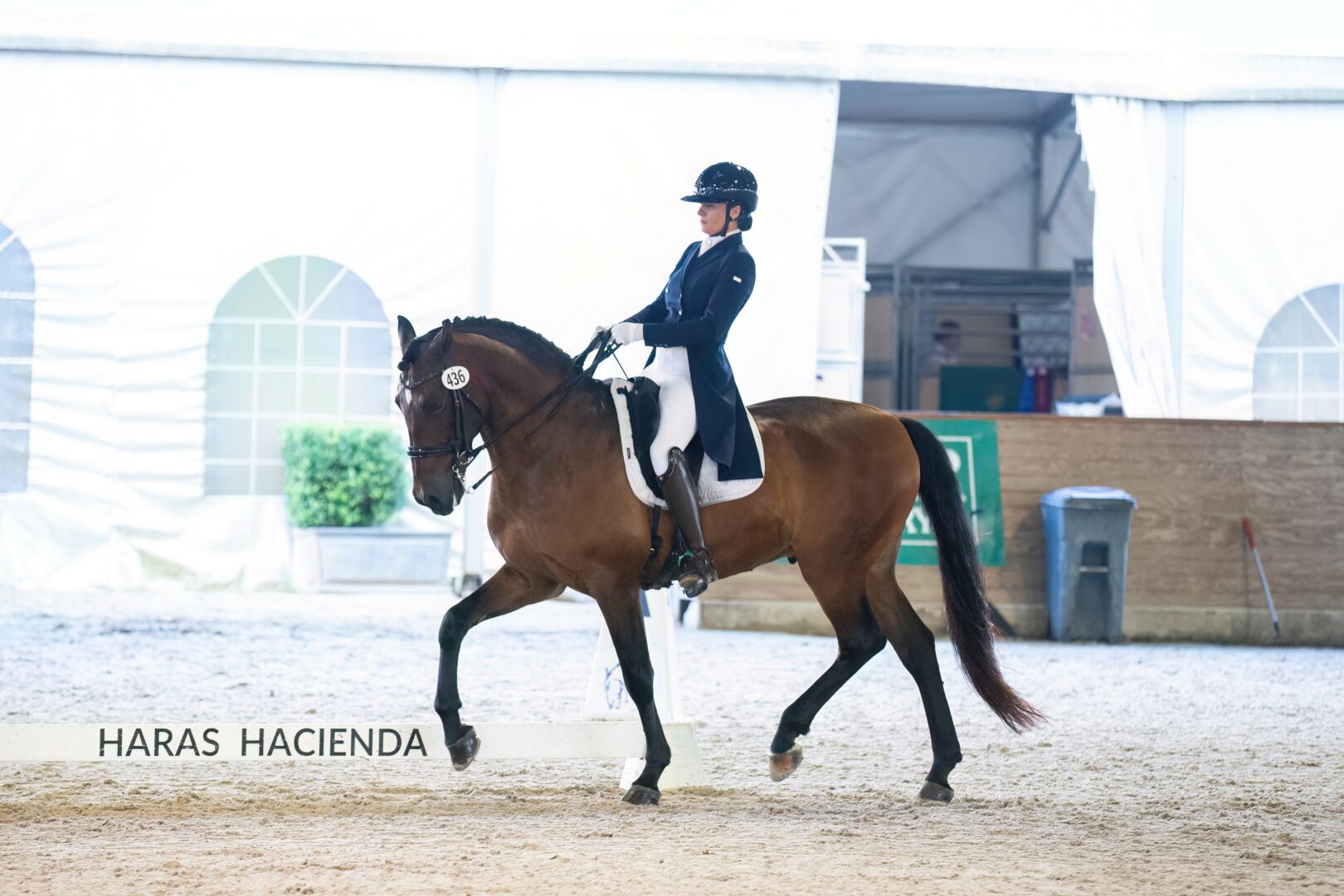We’re looking forward to introducing you to Jennifer Tschuprikow . Check out our conversation below.
Good morning Jennifer , it’s such a great way to kick off the day – I think our readers will love hearing your stories, experiences and about how you think about life and work. Let’s jump right in? What is a normal day like for you right now?
My workday as a dressage trainer at WEC, Woodlands Equestrian Club, typically begins at 7:00 AM. Since we live on-site, the commute is easy — just a short walk to the barn. I start by preparing my tack: saddle pads, gel pads, my saddle, girths, bridles etc. I get into my boots, spurs, gloves, helmet, and we get started.
Each of us usually rides around ten horses a day. I normally start with the young horses that are currently being started under saddle. Then I move on to more sensitive or complex horses, and later in the day, I ride the more advanced ones — often Martha’s personal sales horses or high-potential prospects.
Until a few months ago, our head trainer Marta Renilla was still working with us daily. She has since relocated with her family and competition horses to Ocala, Florida. I’m very grateful that she continues to trust us to manage and train her remaining horses here in Houston — including external sales horses and the boarders’ horses. Our team currently consists of three riders: my partner Gabriel Emilio Realpe, our colleague Carmen Masaya and myself. (Jennifer Tschuprikow)
Throughout the day, we may also have clients visiting to try horses, create sales content like videos or photos, or assist with vet visits and pre-purchase exams. Every day brings new challenges and variety — which I love.
We work until around 3 PM. Before finishing, I clean and organize all equipment: bridles are hung neatly, saddle pads are washed and dried, and everything is reset for the next day. We also use a large whiteboard where we track each horse’s training schedule from Monday to Friday, lesson times for boarders, and ride assignments — it keeps everything running smoothly and efficiently.
I’m currently competing with two horses: a young warmblood in First Level and a talented PRE at Prix St. Georges. My long-term goal is to bring the PRE up to Grand Prix level. If a show is approaching, I adjust the training plan accordingly to keep the horses both fit and mentally fresh. In the afternoons, I often teach riding lessons, depending on the schedule.
No two days are ever exactly the same — and that’s exactly what makes this career so fulfilling.
Can you briefly introduce yourself and share what makes you or your brand unique?
Hello! I’m Jennifer Tschuprikow, a 28-year-old professional dressage rider and trainer currently working at Woodlands Equestrian Club (WEC) in Houston, Texas. With Russian roots, I was born and raised in Germany. I hold a degree in Translation and Interpreting (German, Russian, Spanish) from Johannes Gutenberg University in Mainz.
My equestrian journey has been deeply international and diverse—from vaulting as a child in Germany, to natural horsemanship and yoga with horses in Costa Rica, liberty work in Abu Dhabi, classical dressage in Portugal, and a full four-year education at the Campus of the Royal Andalusian School of Equestrian Art in Spain. There, I trained daily with top Olympic-level riders such as Rafael Soto and Juan Matute. During this time, I also took part in public performances, including the prestigious EVENHORSE show in Seville, featuring Alta Escuela, work in hand, working equitation, doma vaquera, pas de deux, and carousel shows.
At WEC, I focus on the training and development of young horses, sales horses, and client horses, guiding them through systematic dressage work. I’m currently very fortunate to be supported and mentored by Marta Renilla—international Grand Prix competitor, USDF Gold, Silver & Bronze medalist ‘with distinction’ on self-trained horses, and General Manager & Dressage Director at WEC.
I’m currently competing at national and FEI levels and working toward my long-term goal of growing and succeeding at the highest levels of dressage.
Amazing, so let’s take a moment to go back in time. What did you believe about yourself as a child that you no longer believe?
As a child, I believed I was too shy, too soft-spoken, and unable to say no or stand up for myself. I lacked confidence and often felt insecure or embarrassed. Horses changed that. Working with them from a young age—despite being afraid of them at first—helped me grow into a strong, self-assured woman. Overcoming fear and building trust with such powerful animals taught me to lead with clarity and courage. Today, I feel grounded in who I am, and the discipline of dressage has shaped me into someone who can own any space with calm authority.
Was there ever a time you almost gave up?
Absolutely. I believe that anyone who devotes themselves professionally to horses goes through moments—especially during their training years—where giving up feels like an option. There are phases where everything seems overwhelmingly complicated and nearly impossible. In Spanish, we call it a racha, a rough patch where you feel stuck.
Growing up, my family wasn’t in a position to support formal dressage lessons. I learned to ride through local trail riders and by helping with horses in exchange for the chance to sit in the saddle. Later, during university, I spent every semester break doing volunteer work on farms around the world—working hard in exchange for lessons, just to keep learning.
When I started at the Royal Andalusian School of Equestrian Art, I quickly realized that many of the other students came from wealthy backgrounds—some with their own studs or family farms. They had been riding top horses from a young age and naturally had more experience. I, on the other hand, felt like an outsider, trying to keep up. It was humbling and often discouraging.
In the evenings after school, I trained with an independent Spanish coach who worked primarily with young and difficult horses. That’s where I truly hit my limits. I fell off often, got bruised, sore, exhausted—thankfully never seriously injured, but enough to keep me in bed for a few days more than once.
Still, with time and learning, I developed more clarity, resilience, and a sharper mindset. Now I can handle challenging situations more calmly and effectively. That shift from frustration to confidence was a turning point. I’ve come to realize that in dressage, the learning truly never ends. But today, I enjoy my work much more because I understand how to move through the tough moments. Quitting doesn’t solve anything—and if it were easy, everyone would be riding in the Olympics. So, we keep moving forward.
So a lot of these questions go deep, but if you are open to it, we’ve got a few more questions that we’d love to get your take on. What’s a belief or project you’re committed to, no matter how long it takes?
For as long as I can remember, I’ve felt deeply connected to horses. Not just riding them — but understanding them, training them, forming a true partnership through discipline, patience, and feel. That is the foundation of classical dressage, and it’s what I’ve committed my life to, no matter how long it takes.
I didn’t grow up with privilege. I couldn’t afford lessons in dressage. Instead, I worked on farms, volunteered, exchanged barn work for saddle time, and slowly built my education one opportunity at a time. While others had top horses and trainers early on, I had to earn my place — and I believe that shaped me for the better.
I’ve chased knowledge across the world, always seeking refinement and depth in classical dressage. During my four years at the Campus of the Royal Andalusian School of Equestrian Art in , Spain, I had the honor of training under Olympic-level masters such as Rafael Soto and Juan Matute. Every step has been part of the same lifelong project: mastering classical dressage in its purest form.
Now, in Texas, I’m proud to be part of Woodlands Equestrian Club, riding and training under Marta Renilla, an international Grand Prix rider. She trusts me with her horses, her sales prospects, and her clients’ horses – which I consider a great honor. But I still feel like a student. I still chase refinement, every single day.
To me, classical dressage is not a career. It’s a devotion. I believe in it — in training horses correctly, ethically, and artfully — even if it takes a lifetime to master. I don’t want shortcuts. I want depth. That’s the project I’ll never give up on.
Okay, we’ve made it essentially to the end. One last question before you go. What will you regret not doing?
I would regret holding back — not showing up fully, not taking risks, not letting my passion lead the way. I want to look back knowing I poured my whole heart into my work and dreams — that I dared to dream big and chased it with everything in me.
Contact Info:
- Instagram: Horse.Ballet
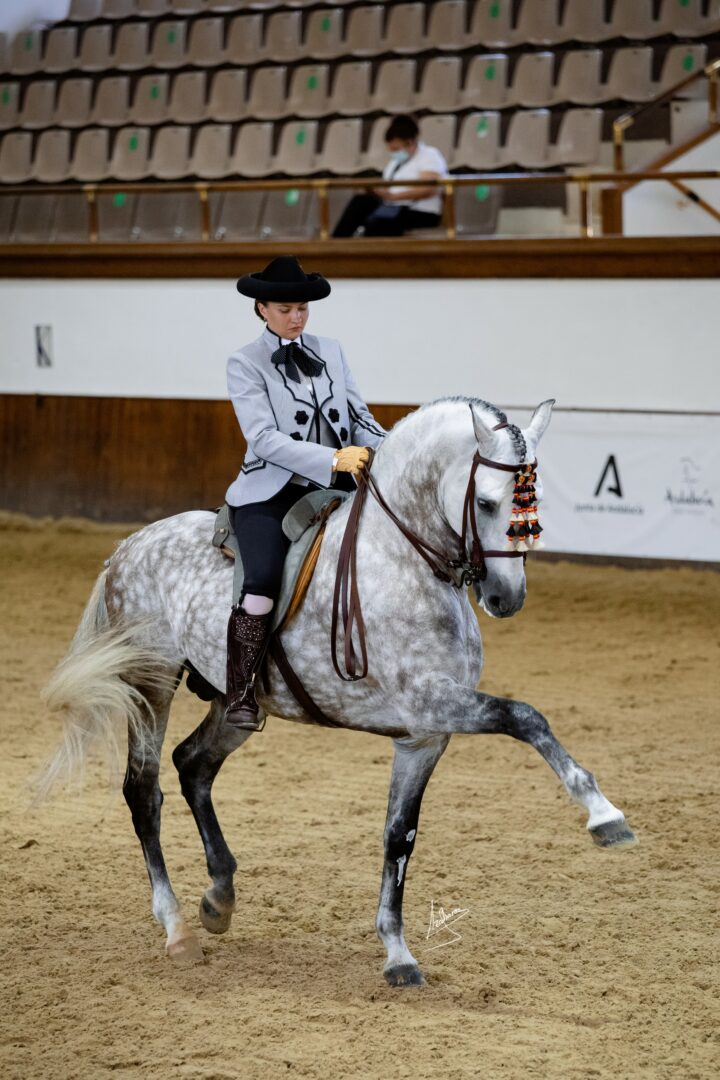
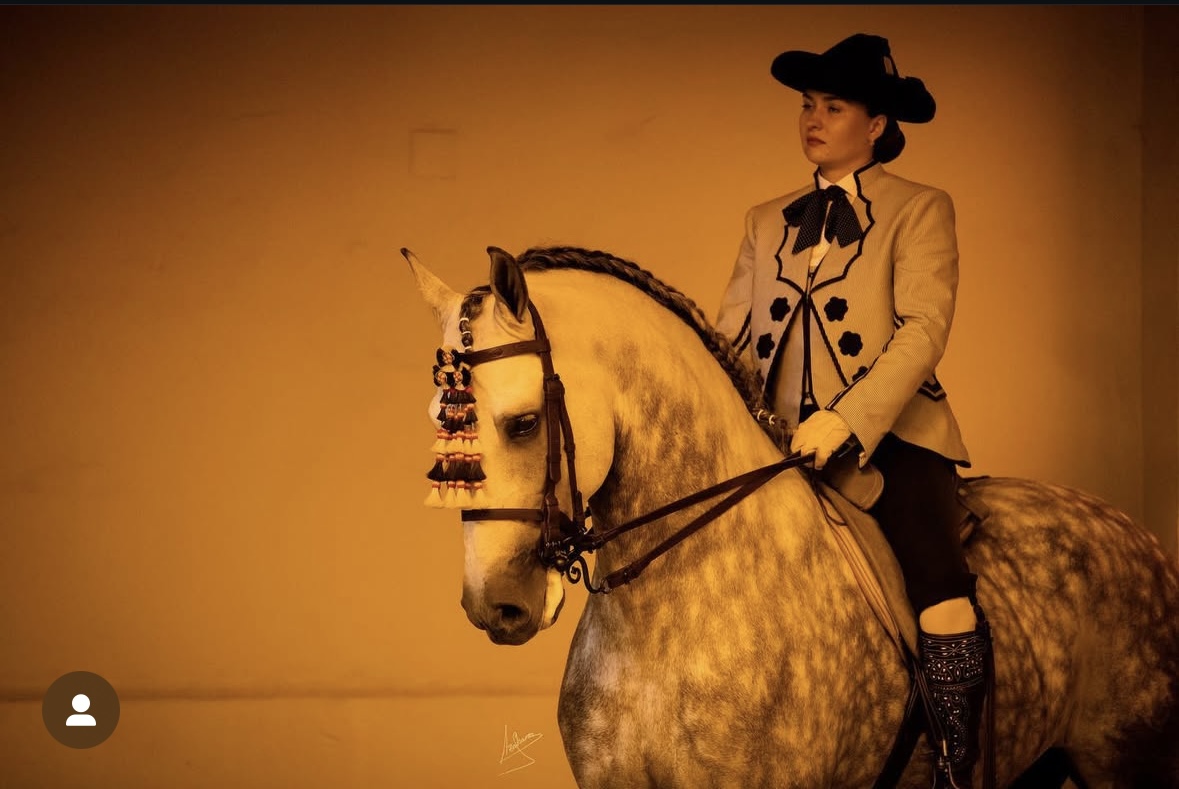
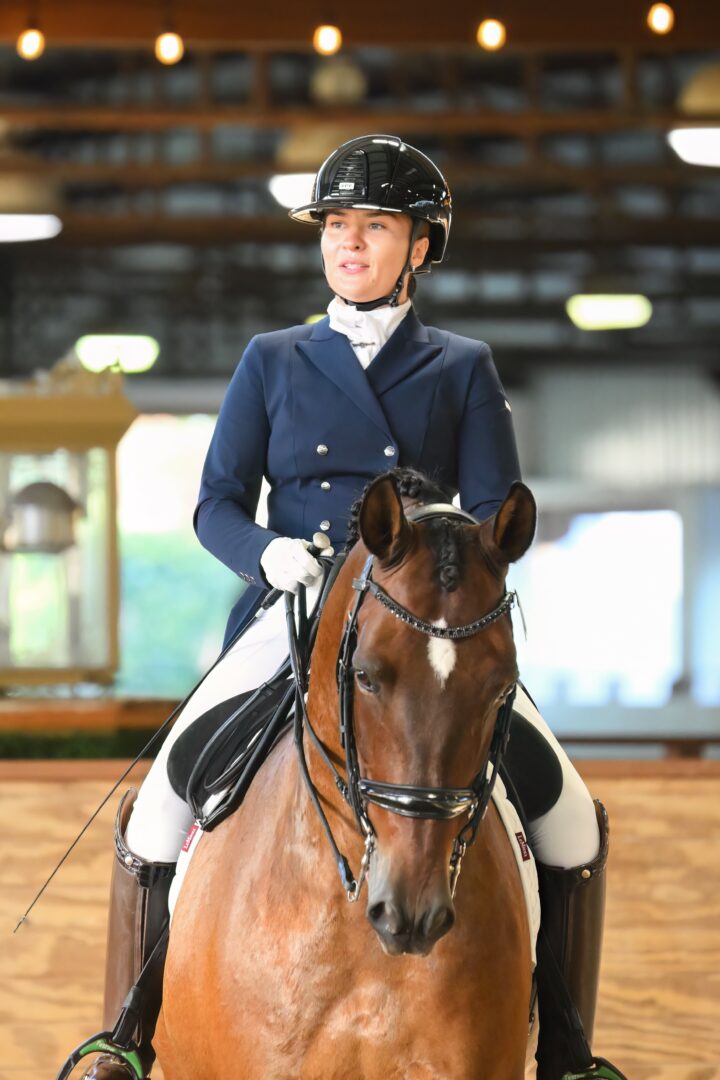
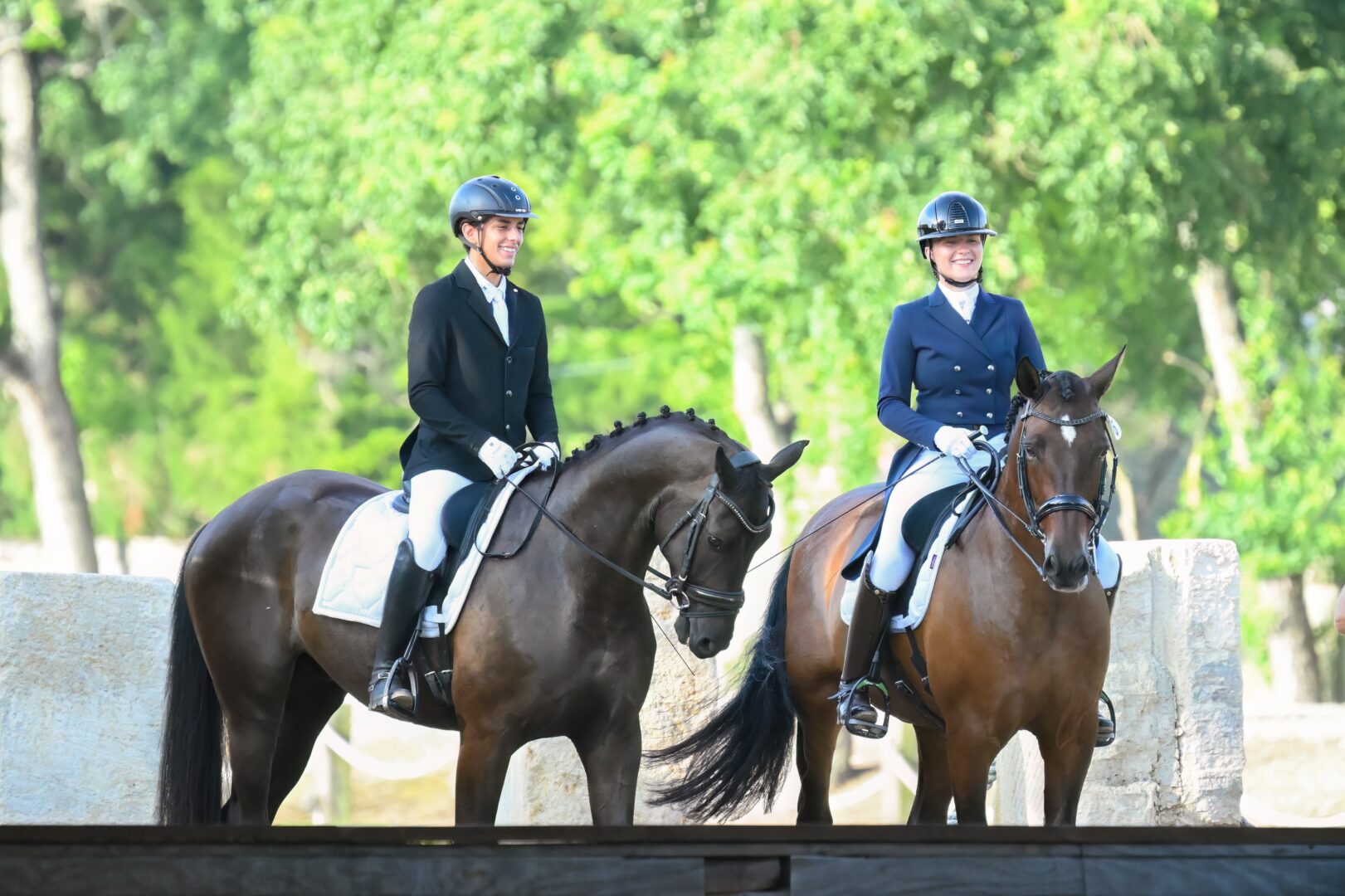
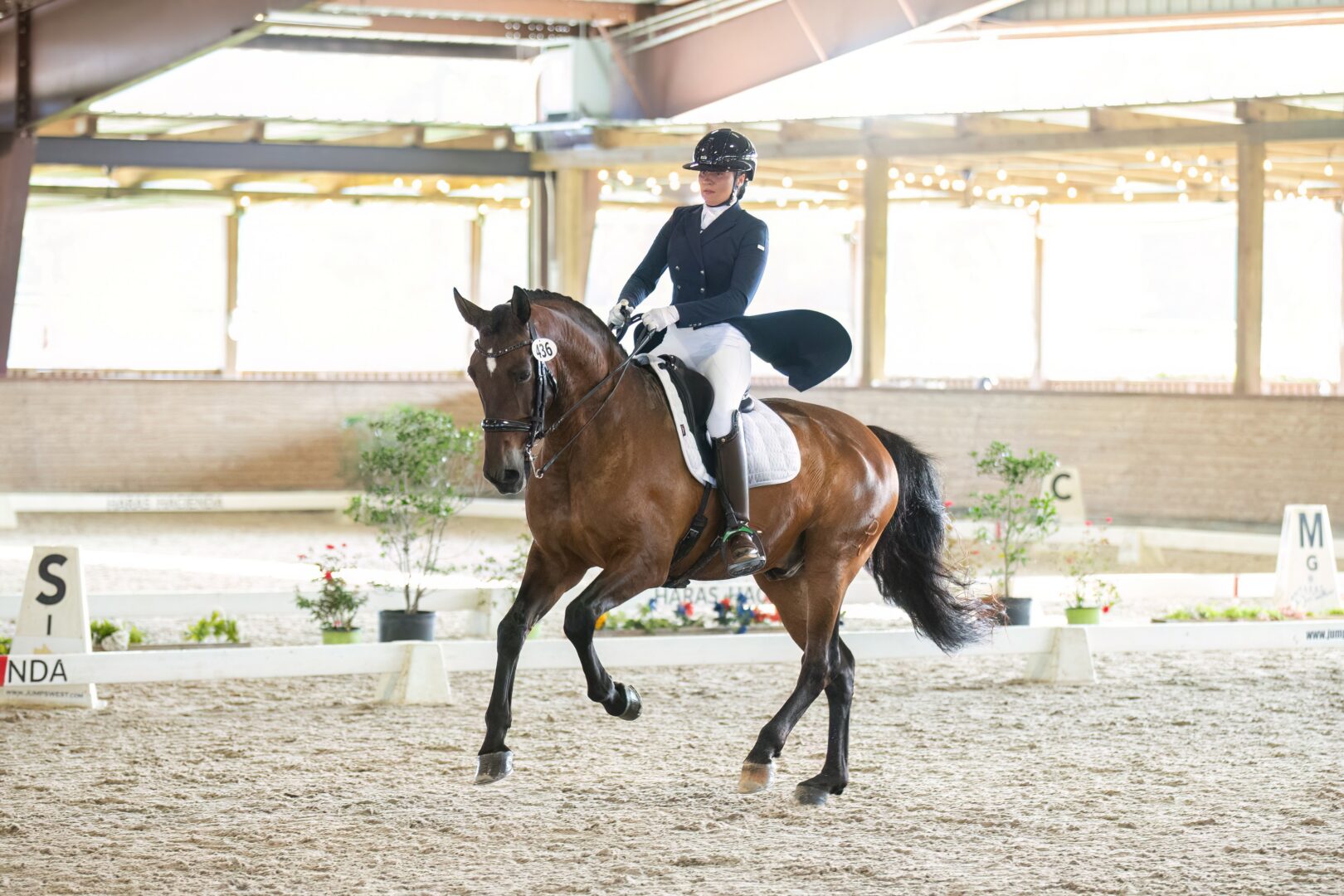
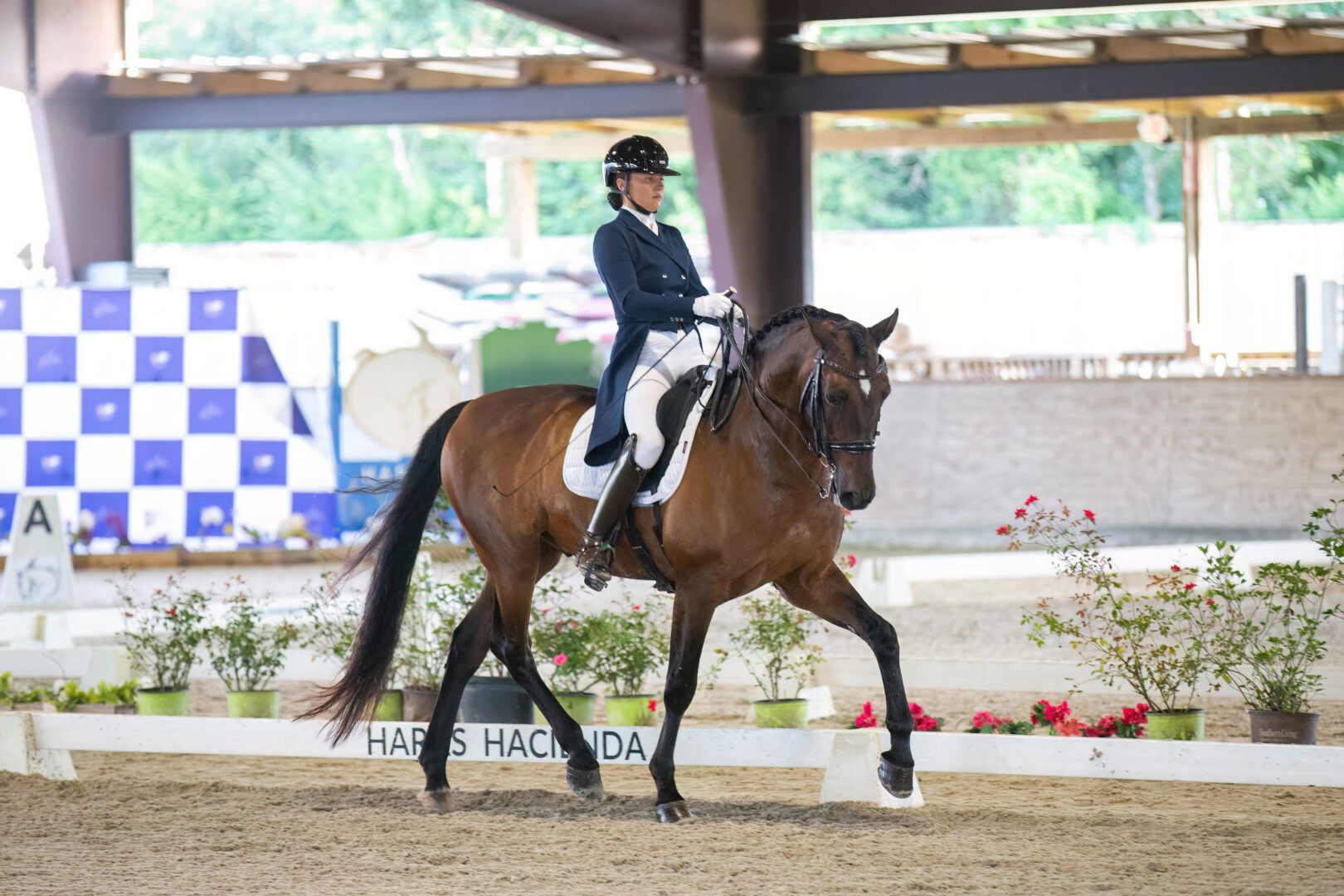
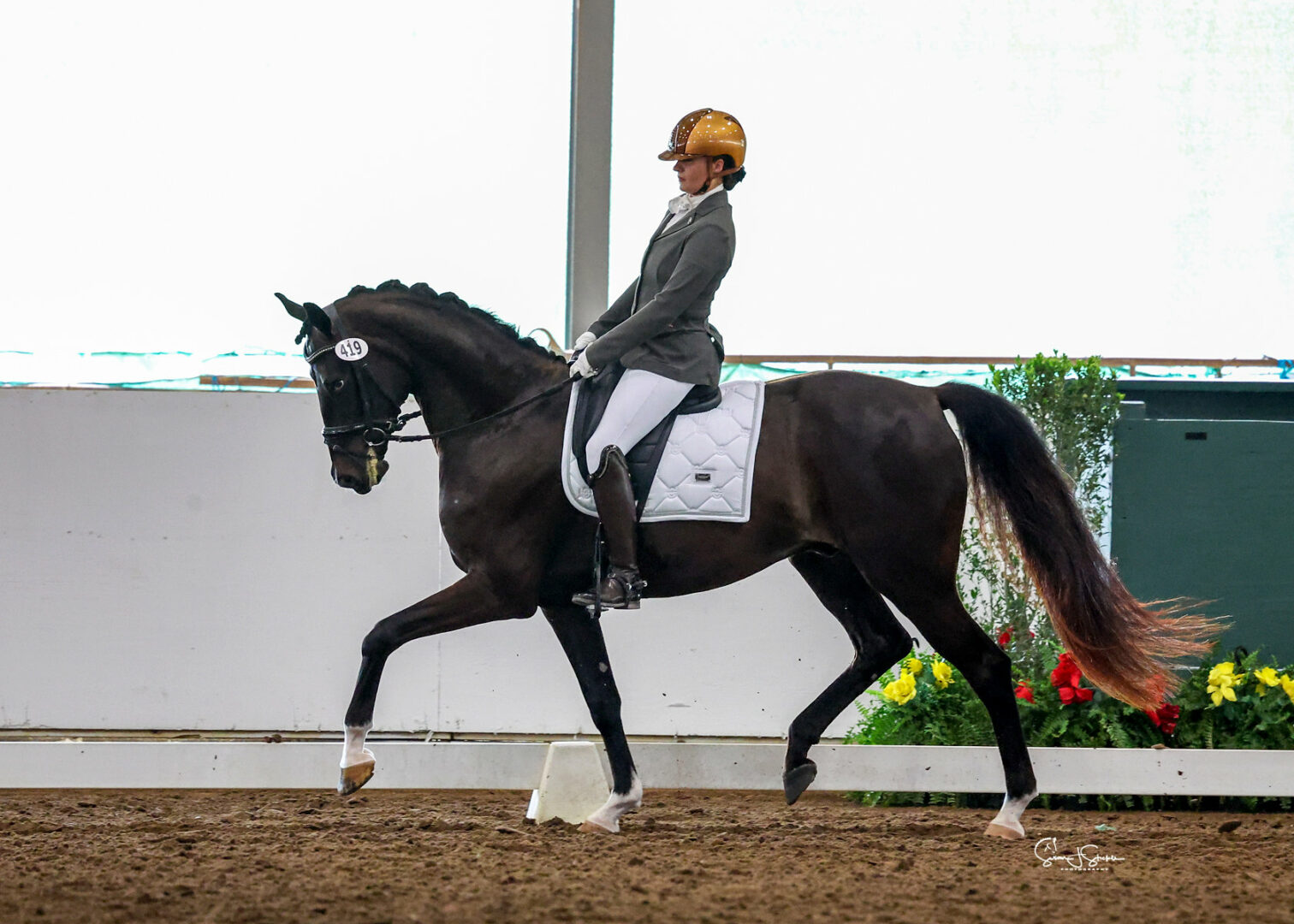
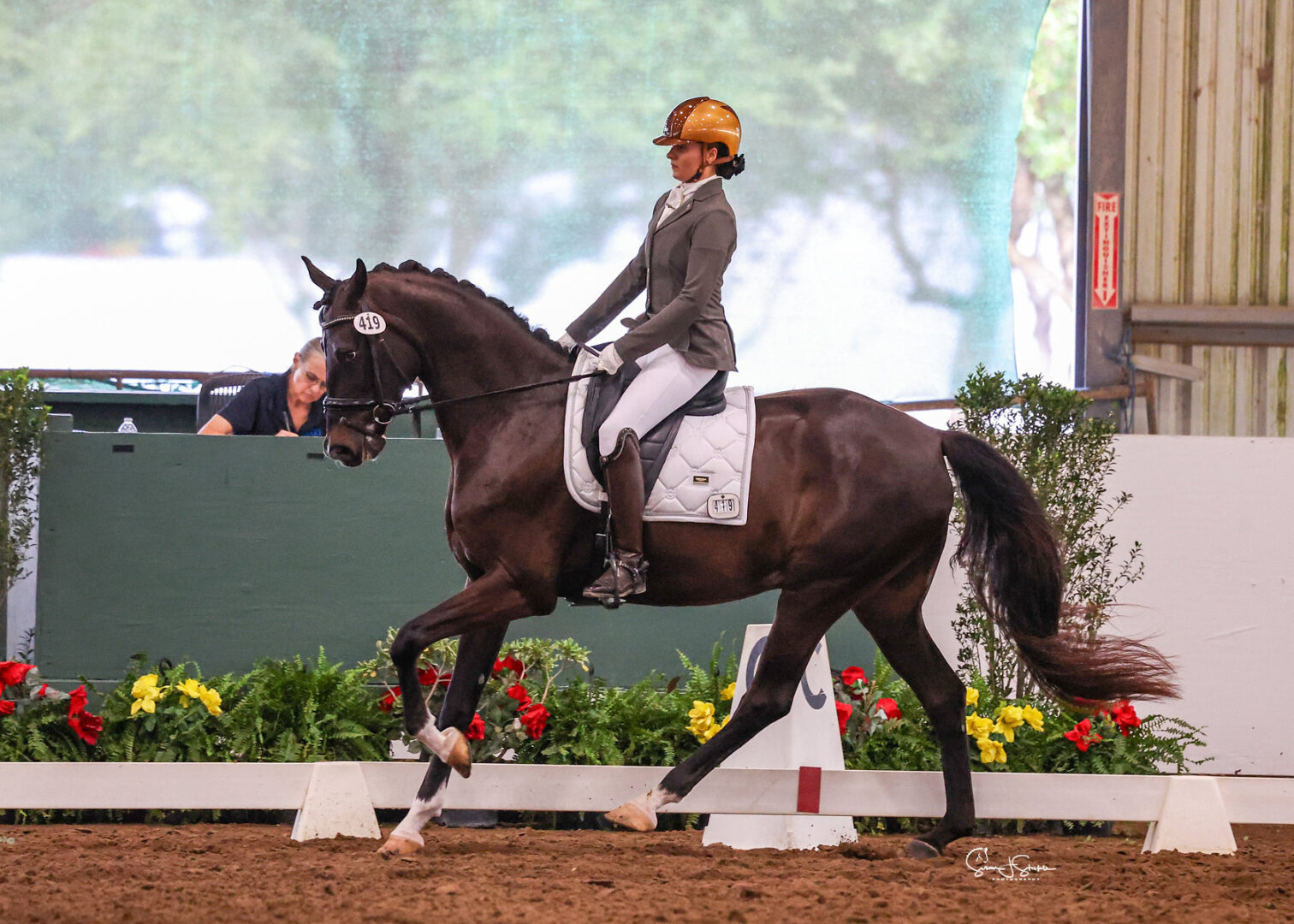
Image Credits
Avery Fletcher Photography
Kristie Nichols Scholten
so if you or someone you know deserves recognition please let us know here.

